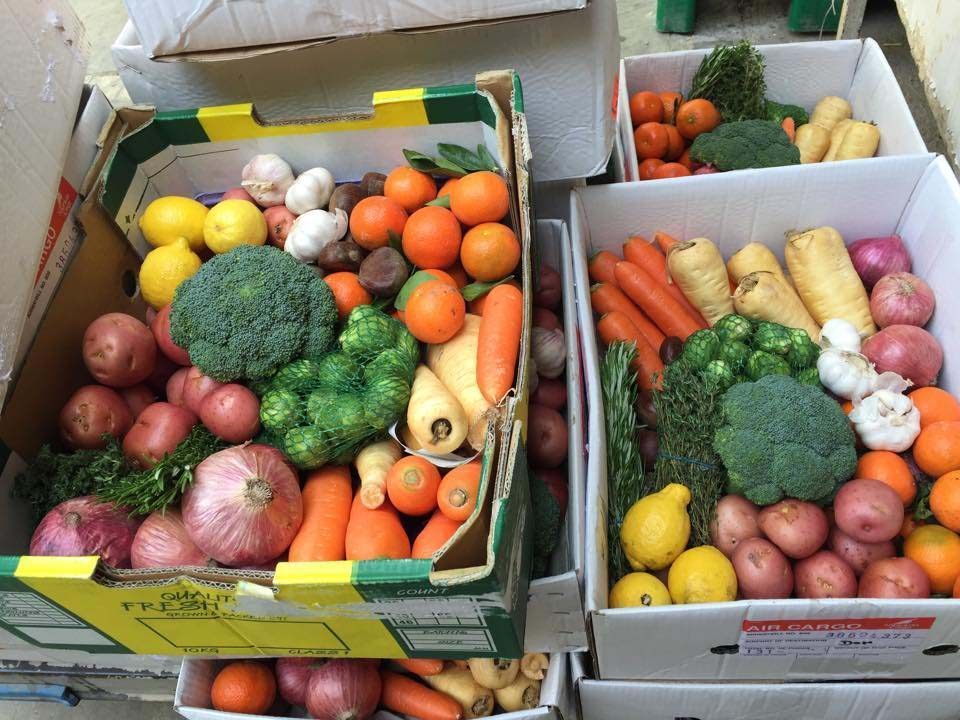
A growing number of entrepreneurs are adding a high-tech twist to the traditional business of selling flowers, fresh fruits and other foodstuffs in Qatar.
Many say the popular mobile messaging tool WhatsApp is becoming an important link between them and their customers, allowing them to overcome language barriers, customize orders and improve service with more accurate delivery directions.
“WhatsApp is brilliant for ordering. People don’t need to have great English, but can still explain exactly what they want through images,” says Rebekah Gomez, the co-founder of fruit and vegetable delivery firm Duniper.
“Or if they want a particular fruit and vegetable that I don’t know the local name for, then I can see what it is from the picture they send us,” she said.
Preferred app
WhatsApp is a free smartphone application that allows individuals to send other users text, image, video and audio messages.
A recent survey conducted by Ipsos Qatar for the Ministry of Information and Communications Technology (ictQatar) found that WhatsApp has become the most used social media and messaging tool for the country’s residents.
Some 87 percent of Qatar’s total population (expats and nationals) reported using the app regularly, while as many as 97 percent of Qatari residents polled said it was their messaging form of choice.
The application’s popularity stems in part from its ease and speed of use, ability to send and receive different forms of media and low cost of use for those with a mobile data plan or access to a Wi-Fi network.
Doha News spoke to several business managers who are using the technology to increase sales and communicate with their customers.
Fruit and veg boxes
One of them is Duniper, which delivers fruit and vegetable boxes direct from the Wholesale Market in Abu Hamour to clients’ homes across Qatar.

A Qatar resident for just over a year, Gomez and her business partners took over an existing box delivery facility and is now expanding and diversifying to improve service.
The boxes of fruit and vegetables are mostly preselected, using in-season produce where possible, although customers can request some changes.
The ordering and delivery process is conducted in English, but because many of the company’s customers are not native speakers, some have problems explaining a particular fruit or vegetable they would like.
Using WhatsApp, these customers often draw pictures or take photographs of their desired order and send them through to Gomez and her colleagues, who can immediately see what they want, without lengthy or confusing explanations.

The service has also apparently improved delivery times normally hindered by Qatar’s notoriously complicated street system.
“Not everyone lives in a big compound. We ask the customers to send us a pin of their location, then we can get an exact address from Google maps, which we send to our driver,” said Gomez, who is originally from the UK.
However, as the business expands with more customers, Gomez said she will be introducing email alongside WhatsApp, to help improve the ordering system and to market to clients, which is more difficult on the messaging system.
She also admitted that the instant messaging nature of WhatsApp can also have some downsides, as many customers expect an immediate response, even late at night.
“I would recommend other business people using it to have a separate work phone, to clearly set out your business hours and to switch off the phone after hours to avoid confusion with customers,” she added.
Detox deliveries
Meanwhile, health food business Raw ME has been growing its business with the help of Whatsapp. The company was established in Qatar since 2012, and already has a strong base of customers who order deliveries of its detox cleanses, fresh juices and corporate fruit baskets.
Qatari-American founder Layla Al-Dorani told Doha News that WhatsApp is an powerful tool for communicating with customers, and also for group messaging her 10 staff members.
“Customers can easily place orders via WhatsApp, update their orders and give us delivery information and they know that they are communicating directly with a real person. They can have a conversation about any issue and get a quick response.
As a business, WhatsApp has been great for us as a means of talking to our customers, but it’s also been a useful means of communicating with our staff.”

Using group-chat enables instant dissemination of the same information to everyone, and allows employees to talk to each other about issues, making them feel more involved in the business, Al-Dorani adds.
“We can keep everyone informed, and it’s transparent – all our staff know what’s going on at the same time. It’s a very efficient way of getting messages out,” she said.
The app has also been an invaluable tool for one resident originally from Palestine, who founded a bespoke cake and patisserie business in Qatar late last year.
Asking not to be named, she said her homemade celebration cakes, desserts and bakery goods have already proved popular. WhatsApp allows her to share creative ideas with her clients, she told Doha News.
“A customer may not always know exactly what they want, but they can send a photo or an image of an idea, then we can quickly and easily talk about what is possible.
And because it’s instant, I can easily see if I get a new request from a client. They can see I’ve viewed the message and I can quickly reply to them. Whereas on email, I find it’s easy to miss a mail,” she said.
Poultry service
Another Whatsapp-friendly business is run by Ahmed, an Egyptian who asked not to have his family name published. He runs a free-range poultry ordering and delivery service from a farm he works on in Al Khor.
After moving to Qatar 16 months ago, he noticed a gap in the market for providing fresh poultry to customers, straight from the local farm.
He told Doha News: “In Egypt, no one buys frozen chicken from the supermarket. People want really fresh products, from a local farm where they know the conditions of the animals.”
He continued:
“The farm I came to has free-range turkeys, geese, chickens, quail and duck, as well as rabbit, and doesn’t use any GMO products, but not many people knew about it.
I started telling people and very quickly word spread. As it approached the holiday season before the end of last year, we had so many orders, I was amazed,” he said.
An Arabic and English speaker, Ahmed said he communicates with his customers using WhatsApp because it’s a cheaper form of messaging, especially with a large number of clients.
“It’s easy for customers to get a hold of me, and place their order. I can quickly get back to them to confirm and when you are messaging 200 or 300 clients at a time, it is much cheaper than talking by SMS,” he added.
Do you use WhatsApp to communicate with retailers? What are the pros and cons?








